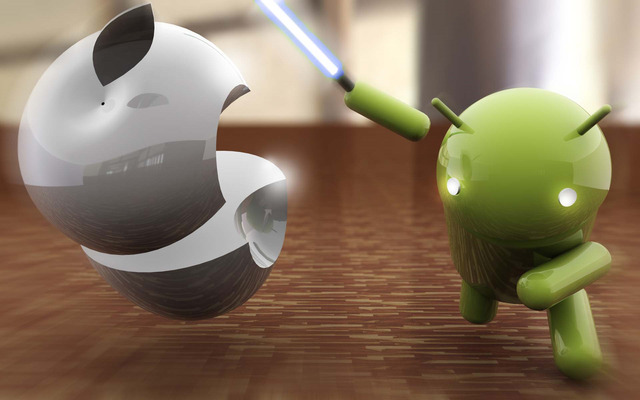Admittedly, the iPhone X is one of Apple’s best works. You can see that from the way it has become such a tough nut to crack for the competition; not even the new Samsung Galaxy S9 lives up to iPhone X when it comes to implementation of Face ID systems or the AR emoji. Features, which first came to Android platform via the Galaxy S9.
However, generally those few little things Apple score highly don’t really matter much to most people. That is because most people are more interested in what the Android platform has to offer. But don’t take my words for it, there is a new report by Consumer Intelligence Research Partners (CIRP), which says Android users have a higher loyalty than iOS users.
That is to say, once you go Android, there is never turning back. While iOS users might easily sample other platforms. Speaking of which, how many iPhone users do you know who also have an Android phone on the side? Could it then mean they don’t get all they could want from just the one platform? But that’s beside the point… moving along.
CIRP found out that Android brand loyalty has remained consistently high since early 2016, and currently stands at the highest levels ever seen. The research firm further states that today, Android boasts of 91% brand loyalty compared to 86% for iOS. As per measures of the U.S. market on the number of users who remained with their operating system when they upgraded their smartphones in 2017.
Mike Levin, a partner and co-founder at CIRP says users are very well settled with their brand of choice at this point.
“With only two mobile operating systems at this point, it appears users now pick one, learn it, invest in apps and storage, and stick with it. Now, Apple and Google need to figure out how to sell products and services to these loyal customer bases.”
Levin and company seem to believe that is why both Apple and Google have now focused on selling services to their user base and try to extract as much revenues from them as possible. Apple’s strategy is apparently working very successfully; the company had a record revenue inflow last November largely driven from services like Apple Music, App Store, iCloud, Apple Pay, and AppleCare.
Tracing users’ behavior on Android is much more complicated than on iOS. On Android a user’s brand loyalty to Android is easily confused when you factor in the fact that they easily switch from one smartphone brand to the next; albeit always remaining with Android device. That is to say, a user might this year have a Samsung smartphone powered by Android, next year, they turn to LG device, again powered by Android.
The Android arrangement gives the user the luxury of trying out different OEMs brands, of course, that comes with minor tweaks to the stock Android, but never having to give up their choice Android apps. Typically, an Android app running on a Samsung phone, will run and feel the same on an LG phone; if they all Android-powered.
The familiarity that comes with Android from one phone to the other is also a strong contributor to the loyalty. An Android user turning to iOS will have a long learning curve compared to turning to another Android phone from a different OEM.
iPhone owners used to be more loyal
It is worth noting that iPhone users used to be more loyal, while loyalty to Android was far less than to iOS. CIRP has been keeping track on these metrics over the year, and for instance, back in 2013, there was more loyalty to iOS than to Android.
Things changed over the year as Google kept releasing newer versions of Android with better performance and user experience. The fact that the OS comes in all shapes and sizes (meaning different phone designs, performance, and built from multiple OEMs) presented a wider range of choice for users.
Starting 2014, loyalty to Android started rising and remained steady to the point is surpassed loyalty to iOS.
“Still, the rate of switching between Android and iOS is different than the absolute number of users that switch between the two operating systems,” said Josh Lowitz, a Partner and Co-Founder of CIRP.
“We know Android has a larger base of users than iOS, and because of that larger base, the absolute number of users that switch to iOS from Android is as large or larger than the absolute number of users that switch to Android from iOS.
Looking at absolute number of users in this way tends to support claims that iOS gains more former Android users than Android does former iOS users.”



